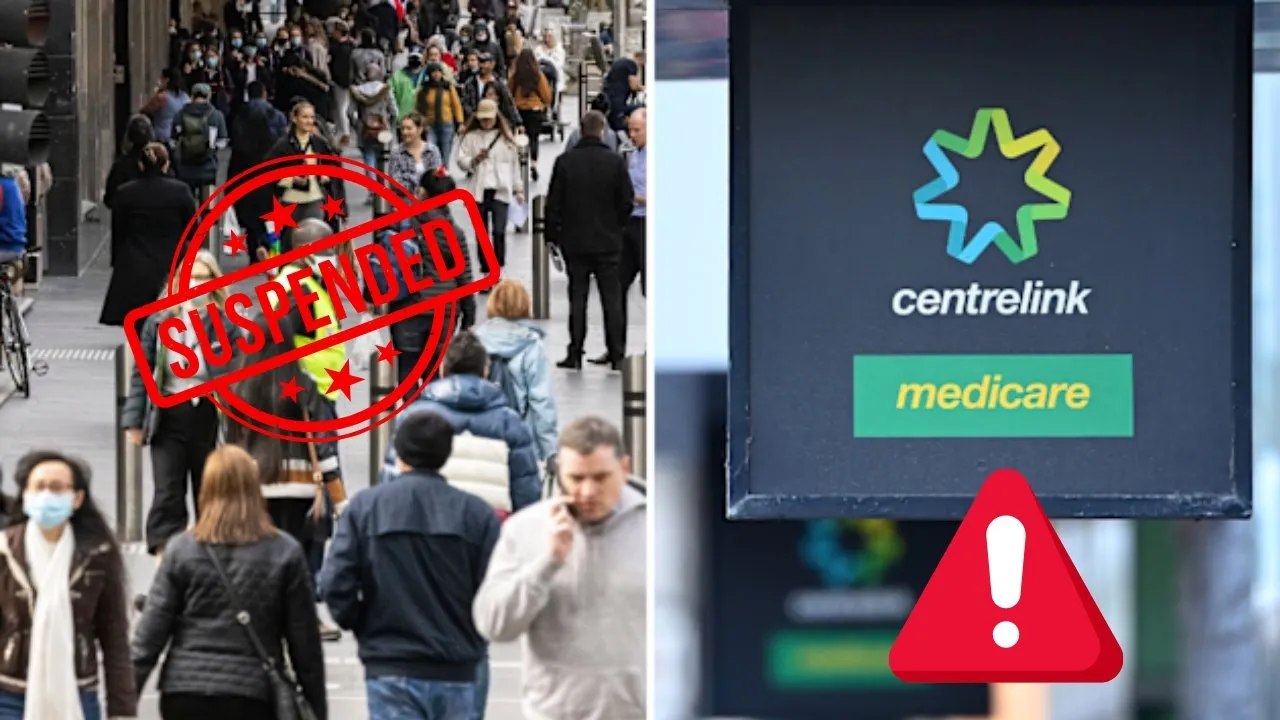A shocking report from Economic Justice Australia (EJA) reveals that more than 300,000 Australians had their Centrelink payments wrongfully cancelled between 2020 and 2024. For those dependent on essential income support like JobSeeker, Youth Allowance, Parenting Payment, and the Disability Support Pension, the unlawful cancellations created financial chaos and long-term distress.
While the government initially admitted to only a few thousand wrongful cancellations, the new figures prove the problem was far larger and reflect deep, systemic failures within Centrelink’s automated systems.
How Did This Happen?
According to research, the core issue lies in Centrelink’s reliance on an automated cancellation system. This technology was designed to manage obligations such as job agency meetings, but failed to comply with legal requirements.
By law, benefit payments can only be stopped 28 days after a missed requirement, giving recipients enough time to provide a reasonable excuse or recover from unexpected hardships. However, the automated system frequently cancelled payments immediately, ignoring these protections.
EJA’s report reveals that these failures were not isolated mistakes. Instead, they were recurring faults that consistently impacted over 110,000 people every year, showing that the system was flawed at its core.
Programs Affected by Wrongful Cancellations
The payment cancellations were widespread, cutting across multiple Centrelink programs:
- JobSeeker Allowance
- Youth Allowance
- Parenting Payment
- Disability Support Pension (DSP)
- Other related Centrelink payments
Families and individuals already vulnerable to cost-of-living pressures lost their only source of reliable income, often for weeks or months, before errors were corrected.
The Impact on Australians
For affected Australians, the sudden loss of income meant immediate hardship. Some recipients lost the ability to pay rent and utilities, while others had to rely on charities and community food banks to survive.
EJA documented cases where recipients were forced into long-term debt, as repayments piled up during the period when payments were cut. The lack of income not only led to financial struggles but also deep emotional trauma, leaving many questioning their stability and basic security.
Recipients described experiencing:
- Intense stress and sleepless nights
- Mental health deterioration
- Loss of trust in Centrelink and government processes
- Prolonged uncertainty even after payments were restored
Government’s Response and Failures
The government originally acknowledged that “some” payments were unlawfully cancelled, estimating the figure at a few thousand. Now, with EJA confirming 310,000 wrongful cancellations, this figure shows the true scale of the problem was underestimated or unacknowledged for years.
Repeatedly, officials promised reviews of Centrelink’s IT systems that caused these failures. Yet, year after year, system errors continued. The crisis has drawn comparisons with the infamous Robodebt scandal, where automated debt notices created unlawful obligations for Australians who did not owe money.
Despite temporary reviews and compliance halts, trust in Centrelink remains low, with many recipients still fearful that payments could be cut without warning.
IT System Failures Continue
Centrelink’s IT shortcomings have been blamed for a series of welfare crises. Beyond unlawful cancellations, recipients have also reported:
- Incorrect debt notices being issued
- Delays in correcting system errors
- Poor communication with affected welfare recipients
- Inconsistent enforcement of exemptions and special circumstances
By 2025, the government had frozen certain automated compliance activities, but many argue it came too late. EJA and other advocacy groups insist the system itself must undergo structural reform to prevent further damage.
What Can Affected Centrelink Recipients Do?
For those who had their payments unlawfully cancelled, the advice is clear:
- Check all records: Maintain and review correspondence from Centrelink between 2020 and 2024.
- Gather evidence: Any exemption notices, proof of obligations met, or correspondence about obligations can strengthen appeals.
- Seek legal support: Legal aid services and welfare advocacy organizations are now assisting victims of the cancellations.
- Community support: Many local groups and charities are offering practical assistance such as food relief, rental aid, and advocacy help.
- Compensation claims: Advocacy groups are pushing for those affected to receive compensation for financial and psychological damages.
Wider Implications for Australia’s Welfare System
The revelations have raised serious questions about Australia’s welfare oversight. If hundreds of thousands of people can lose income unlawfully through automation, it highlights vulnerabilities in how welfare is administered.
Advocates warn that welfare programs must be designed around compassion, fairness, and human review, not blind reliance on algorithms. Automated decision-making without adequate safeguards risks repeating failures like Robodebt.
EJA has called for:
- Immediate reform of Centrelink’s automated systems
- An independent review into why illegal cancellations were allowed for so long
- Stronger legislative protections to ensure income cannot be cut wrongly
- Transparent reporting of IT failures and cancellation figures
Table: Wrongful Centrelink Cancellations (2020–2024)
| Year | Estimated Cancellations | Programs Impacted |
|---|---|---|
| 2020 | 70,000+ | JobSeeker, Youth Allowance |
| 2021 | 65,000+ | Parenting Payment |
| 2022 | 60,000+ | DSP, JobSeeker |
| 2023 | 58,000+ | Youth Allowance, Various |
| 2024 | 57,000+ | Multiple programs |
| Total | 310,000+ | All major Centrelink schemes |
Conclusion
The 2025 Centrelink crisis highlights one of the most troubling welfare failures in modern Australian history. With 310,000 wrongful cancellations, families and individuals endured avoidable hardship caused by systemic flaws and automation gone wrong.
While the government has promised reviews, welfare advocates argue that Australians deserve more than promises—they deserve justice, compensation, and a system that guarantees fairness. For the thousands still living with the impacts of lost payments, the path forward depends on urgent reforms, accountability, and restoring trust in the nation’s social safety nets.
The lesson is clear: when humans are replaced by unregulated automation in decisions affecting livelihoods, the result can be disastrous. The future of Centrelink must ensure dignity, accountability, and stability for those who rely on it most.
